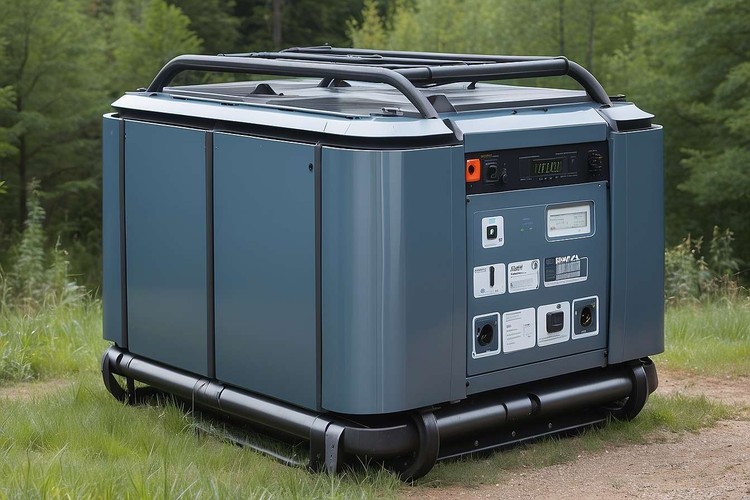Irish Home Generator Buying Guide: Types, Features, and Future Trends
Power outages can strike at any moment, leaving Irish households without electricity for heating, cooking, and essential appliances. Understanding the options available for backup power solutions is crucial for homeowners seeking reliability and peace of mind. This comprehensive guide explores the various types of generators suitable for Irish homes, key features to consider, and emerging trends shaping the future of residential power backup systems.

Selecting the right backup power solution for your home requires careful consideration of several factors, including power requirements, fuel type, portability, and budget. Irish homeowners face unique challenges due to the country’s climate and infrastructure, making it essential to choose a generator that meets specific needs while complying with local regulations and safety standards.
Understanding 220v and 110v Power Requirements
Irish homes operate on a 230-volt electrical system, which differs from the 110-volt standard used in some other countries. When selecting a generator, ensuring compatibility with 220v appliances is essential. Most modern generators designed for the Irish market provide 230v output, suitable for powering household appliances, heating systems, and lighting. Some units offer dual voltage options, providing both 220v and 110v outlets, which can be useful for charging power tools or running specialized equipment. Understanding your home’s total wattage requirements helps determine the appropriate generator capacity, typically ranging from 3kW for basic needs to 10kW or more for whole-house backup.
Portable Generators for Camping and Outdoor Use
Portable generators serve dual purposes, providing emergency home backup and reliable power for outdoor activities. Camping enthusiasts across Ireland appreciate compact, lightweight models that deliver sufficient power for lighting, cooking appliances, and charging devices. These units typically range from 1kW to 3kW, offering enough capacity for recreational needs while remaining easy to transport. Features like quiet operation, fuel efficiency, and weather-resistant construction make portable generators ideal for Irish camping conditions. Inverter technology in modern portable units produces clean, stable power suitable for sensitive electronics, making them versatile for both outdoor adventures and emergency home use.
Home Renovation Projects Requiring 220v Power
During home renovations, temporary power solutions become necessary when main electrical systems are offline or insufficient. Contractors and homeowners undertaking significant renovation projects often require generators capable of running power tools, lighting, and equipment simultaneously. A generator providing stable 220v output ensures compatibility with professional-grade tools like circular saws, drills, and compressors. Sizing the generator correctly for renovation work involves calculating the combined wattage of all tools and equipment that might operate simultaneously, typically requiring units between 5kW and 8kW. Safety considerations include proper grounding, adequate ventilation, and compliance with building regulations during temporary power installations.
Comparing Generator Types and Providers
Irish homeowners can choose from several generator types, each with distinct advantages. Petrol generators offer affordability and widespread fuel availability, while diesel models provide better fuel efficiency and longevity for frequent use. LPG generators appeal to those seeking cleaner emissions and convenient fuel storage. Inverter generators deliver superior power quality for sensitive electronics but typically cost more. Standby generators, permanently installed outside the home, provide automatic backup during outages but require professional installation and higher initial investment.
| Generator Type | Typical Providers | Key Features | Cost Estimation |
|---|---|---|---|
| Portable Petrol | Honda, Hyundai, Clarke | Lightweight, affordable, versatile | €300 - €1,200 |
| Portable Inverter | Yamaha, Champion, Briggs & Stratton | Quiet operation, clean power, fuel efficient | €500 - €2,000 |
| Diesel Standby | Generac, Kohler, Pramac | Automatic operation, high capacity, durable | €3,000 - €8,000 |
| LPG/Dual Fuel | Westinghouse, DuroMax, Firman | Clean burning, flexible fuel options | €600 - €2,500 |
Prices, rates, or cost estimates mentioned in this article are based on the latest available information but may change over time. Independent research is advised before making financial decisions.
Essential Features for Irish Climate Conditions
Ireland’s damp, temperate climate demands generators with robust weather protection and reliable cold-starting capabilities. Look for models with weatherproof enclosures, rust-resistant components, and electric start systems that function reliably in cold temperatures. Fuel stabilizers become important for petrol generators stored for extended periods, preventing carburetor issues caused by moisture and fuel degradation. Noise levels matter in residential areas, with many Irish neighborhoods having noise restrictions, making quieter inverter or enclosed models preferable. Runtime capacity affects convenience during extended outages, with larger fuel tanks or efficient consumption rates reducing refueling frequency during multi-hour power failures.
Future Trends in Home Backup Power
The residential generator market is evolving rapidly, with several trends shaping future options for Irish homeowners. Solar-powered battery systems are gaining popularity, offering silent, emission-free backup power with lower operating costs over time. Hybrid systems combining traditional generators with battery storage optimize fuel efficiency while providing instant power switching. Smart monitoring technology enables remote generator management through smartphone apps, alerting homeowners to maintenance needs and operating status. Improved fuel efficiency and reduced emissions reflect growing environmental awareness, with manufacturers developing cleaner-burning engines meeting stricter regulations. Modular systems allowing capacity expansion as household needs grow provide flexibility for homeowners planning long-term power solutions.
Selecting the appropriate generator involves balancing immediate needs with long-term considerations, including maintenance requirements, fuel availability, and potential expansion. Irish homeowners benefit from consulting with qualified electricians to ensure proper installation, compliance with safety standards, and integration with existing electrical systems. Regular maintenance, including oil changes, filter replacements, and periodic testing, ensures reliability when backup power becomes necessary during unexpected outages.




